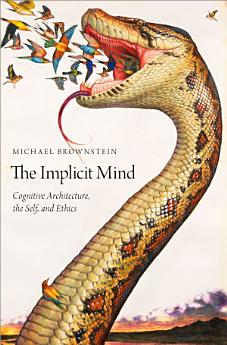The Implicit Mind: Cognitive Architecture, the Self, and Ethics
Apr 2018 · Oxford University Press
Ebook
288
Pages
family_home
Eligible
info
reportRatings and reviews aren’t verified Learn More
shoppingmode30% price drop on Jul 29
About this ebook
Heroes are often admired for their ability to act without having "one thought too many," as Bernard Williams put it. Likewise, the unhesitating decisions of masterful athletes and artists are part of their fascination. Examples like these make clear that spontaneity can represent an ideal. However, recent literature in empirical psychology has shown how vulnerable our spontaneous inclinations can be to bias, shortsightedness, and irrationality. How can we make sense of these different roles that spontaneity plays in our lives? The central contention of this book is that understanding these two faces of spontaneity-its virtues and its vices-requires understanding the "implicit mind." In turn, understanding the implicit mind requires considering three sets of questions. The first set focuses on the architecture of the implicit mind itself. What kinds of mental states make up the implicit mind? Are both "virtue" and "vice" cases of spontaneity products of one and the same mental system? What kind of cognitive structure do these states have, if so? The second set of questions focuses on the relationship between the implicit mind and the self. How should we relate to our spontaneous inclinations and dispositions? Are they "ours," in the sense that they reflect on our character or identity? Are we responsible for them? The third set focuses on the ethics of spontaneity. What can research on self-regulation teach us about how to improve the ethics of our implicit minds? How can we enjoy the virtues of spontaneity without succumbing to its vices? Bringing together several streams of philosophical and psychological research, The Implicit Mind is the first book to offer a philosophical account of implicit attitudes.
About the author
Michael Brownstein is Associate Professor (as of 2018) of Philosophy at John Jay College/CUNY.
Rate this ebook
Tell us what you think.
Reading information
Smartphones and tablets
Install the Google Play Books app for Android and iPad/iPhone. It syncs automatically with your account and allows you to read online or offline wherever you are.
Laptops and computers
You can listen to audiobooks purchased on Google Play using your computer's web browser.
eReaders and other devices
To read on e-ink devices like Kobo eReaders, you'll need to download a file and transfer it to your device. Follow the detailed Help Center instructions to transfer the files to supported eReaders.





